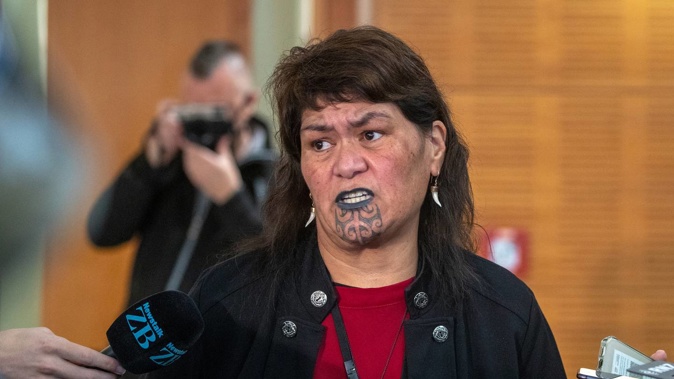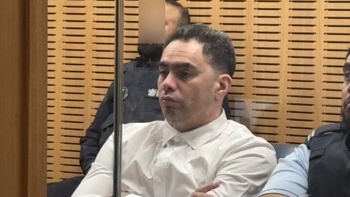
The Government is one step closer to its massive amalgamation of council water infrastructure, after the introduction of legislation that would create New Zealand's new Three Waters regime. The step came as a breakaway group of councils launched legal action against the reforms.
Local Government Minister Nanaia Mahuta introduced legislation to Parliament on Thursday that will create the four new water entities that will deliver Three Waters services – drinking water, wastewater, and stormwater – to New Zealanders.
Currently, those services are managed by councils. This bill would mean those assets are taken from councils and put into one of four new entities. Councils will each own a piece of the new entities through a shareholding.
The governance of the four entities has proved to be controversial.
The entities will be controlled by boards that are appointed by a panel, which is appointed equally by a group of representatives from councils and mana whenua.
The boards are accountable to that representative group.
What is commonly called the "co-governance" of Three Waters is the fact that this group is co-governed by both mana whenua and councils, despite councils owning the water assets.
"The bill establishes four dedicated Water Service Entities that will enable infrastructure to provide safe and affordable drinking water, wastewater and stormwater services," Mahuta said.
"These changes will deliver clean and safe drinking water services at an affordable price for New Zealanders. By investing in such critical infrastructure now we can help secure New Zealand's economy for future generations," she said.
Following opposition from councils over the structure of the entities, Mahuta appointed a working group to investigate possible solutions. She adopted most of the recommendations, although the most controversial aspect of the reforms – co-governance – remained.
Mahuta said this legislation was the first of several bills that will create the new water regime.
"These changes will deliver clean and safe drinking water services at an affordable price for New Zealanders. By investing in such critical infrastructure now we can help secure New Zealand's economy for future generations," Mahuta said.
"Everyone accepts the need for change. Without reform our water infrastructure will continue to deteriorate. Households, businesses and communities would face genuine public health risks, services that don't meet their needs, and rising bills of up to $9,000 a year per household just for water services," she said.
National agreed the area of Three Waters needs reform, but disagrees with current Three Waters proposals, which it has promised to repeal.
National's local government spokesman Simon Watts said the "Government has consistently ignored alternatives proposed like establishing council-controlled organisations or contracting, and have pursued their four mega-entities model."
Mahuta defended her model.
"Years of underinvestment across the country has led to threats to water quality. Pipes burst in our city streets, sewage flows into our waterways, and almost 500,000 New Zealanders in one year were forced to boil their water because of faecal contamination," Mahuta said.
"This is unacceptable and the costs to communities and ratepayers are just too big to ignore. We are acting now because others wouldn't," she said.
"Independent advice shows up to $185 billion of investment over 30-years is needed to address underinvestment in maintenance and replacements, upgrade water infrastructure to meet modern standards, provide for growing communities and build resilience against climate change and natural hazards," she said.
Meanwhile a breakaway group of councils launched a legal challenge to Three Waters reform.
The councils cannot block Parliament from legislating their water assets into a new water entity - Parliament has the supreme power to legislate whatever it likes.
The councils can, however, petition the courts to declare what the councils' property rights mean in the context of Three Waters and other future reforms.
The Government has maintained that it is not confiscating council property because the councils will own a share of the new entities, but councils have argued these ownership stakes are close to meaningless, as they are almost impossible to sell and give councils very little control over their water assets.
The Timaru, Waimakariri and Whangarei District councils launched the action.
Timaru District Mayor Nigel Bowen argued the Three Waters reforms set a precedent that could have serious ramifications for owners of any property.
"Property rights are absolutely fundamental in New Zealand. If you've bought and paid for something you should have reasonable control over it, and a legitimate expectation that it will not be expropriated without compensation. As owners on behalf of the community of this critical infrastructure we want to ensure that any future changes respect these basic rights," he said.
"While Three Waters reform prompted this action, what we're talking about here concerns some really basic and fundamental rights that most people ordinarily would take for granted and normally wouldn't be up for discussion or even be a source of contention," he said.
The hearing dates have been set down for June 7 and 8 in the Wellington High Court.
- by Thomas Coughlan, NZ Herald
Take your Radio, Podcasts and Music with you









